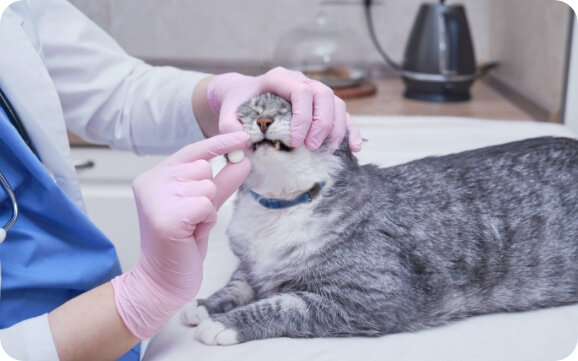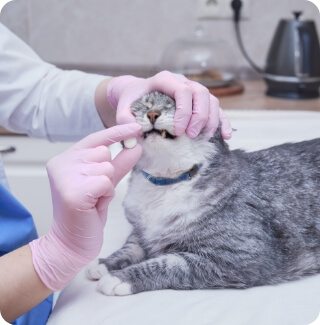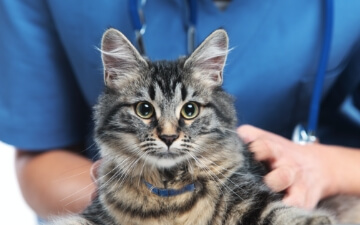
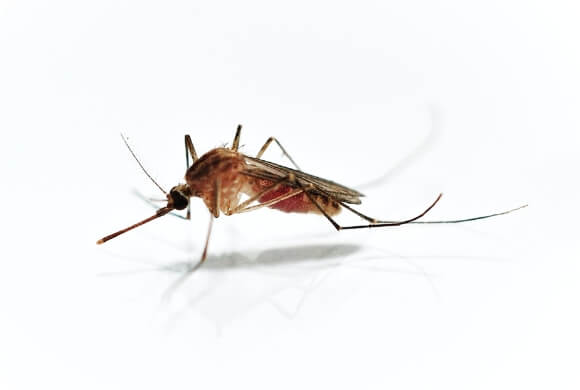
How Do Cats Get Heartworms?
Cats get heartworms through the bite of an infected mosquito. Because heartworms require 2 host animals to complete their life cycle, the mosquito acts as the intermediate host. Once the mosquito bites an infected animal, it ingests the microfilariae, which develop into infective larvae in the mosquito in about 10-14 days. When an infected mosquito bites a cat, it transfers the infected larvae to the cat, continuing the heartworm larval life cycle and infecting the cat with heartworms.

Signs of Heartworms in Cats
Most heartworms in cats won’t survive to the adult stage of their life cycle. Due to cats’ smaller size, and strong immune response, the presence of even 1 or 2 adult worms can be considered heavily infected.
Although cats typically have fewer heartworms than dogs, an infection can still be deadly. Heartworms in cats can trigger an intense immune reaction that can cause severe or even fatal symptoms.
Signs of heartworms in cats include:
- Coughing, gagging, and rapid breathing (often confused with asthma)
- Intermittent vomiting of food or blood (in severe cases)
- Loss of appetite and weight loss
- Lethargy
- Rapid heart rate
- Blindness
- Collapse
- Convulsions
- Sudden death
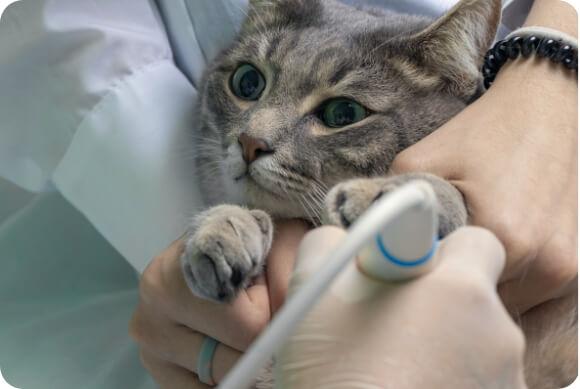
How Are Heartworms in Cats Diagnosed?
Heartworms in cats can be difficult to diagnose because most cats don’t show signs of infection. If they do show signs, the symptoms can be easy to confuse with other conditions. Typically, your cat will require multiple tests and procedures to confirm a heartworm diagnosis.
These tests include:
- Several types of blood tests
- Physical exam
- X-ray
- Ultrasound
Monitor for Symptoms
Many cats may be asymptomatic. Therefore, your vet may recommend monitoring for symptoms and supportive therapies as needed.
Supportive Therapies
As symptoms arise, your vet may recommend supportive therapy and monitoring to help manage the symptoms until they pass. Therapies may include corticosteroids, antibiotics, and cardiovascular drugs.
How to Prevent Heartworms in Cats
Heartworm prevention is important, which is why vets recommend starting your cat on prevention at a young age. This is especially true for cats cohabitating with a dog, or any other pet that spends time outside.
Indoor cats who do not interact with outdoor pets are still at risk for heartworm infection, as the mosquito is the intermediate host. All it takes is one infected mosquito to enter the home and bite your cat to transmit the infection.
-
Reference
- 1. Marcucci, B. A Comparison of Canine and Feline Heartworm Disease. VetFolio. Accessed August 19, 2022. https://www.vetfolio.com/learn/article/a-comparison-of-canine-and-feline-heartworm-disease
Related Articles


There’s almost nothing more exciting than welcoming a new kitten into your home. However, it’s important to be sure you’re not...


Congratulations on your new kitten! Understandably, welcoming a new kitten into your home is accompanied with some...




